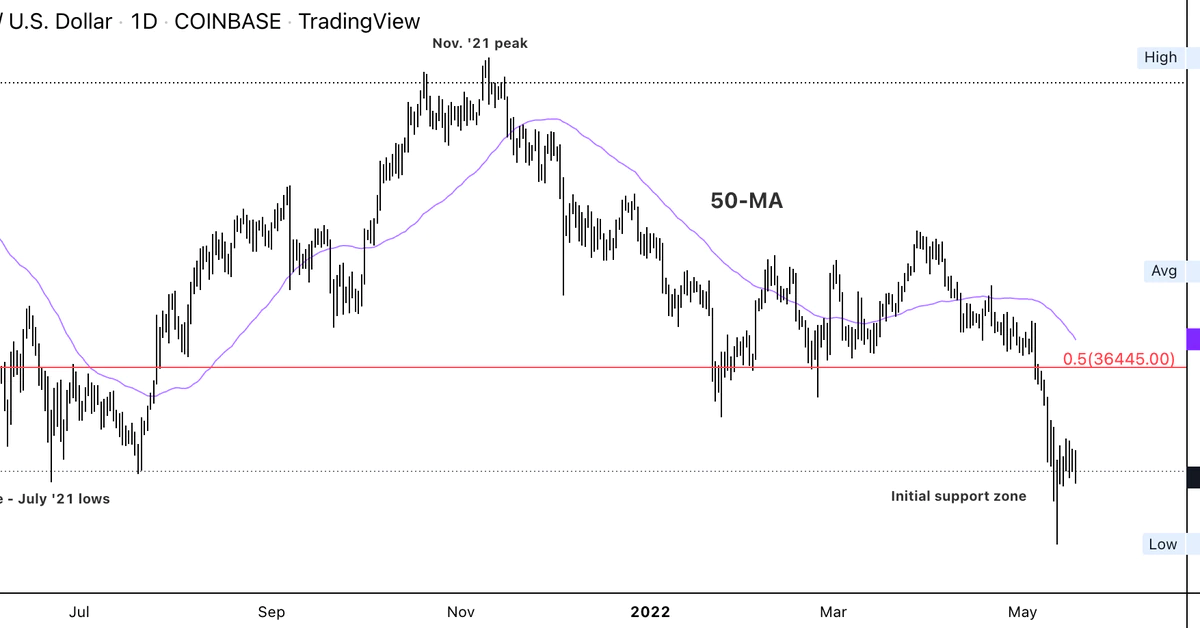Thanks in part to the uncertainty of the coronavirus crisis and rising bitcoin prices, bitcoin wallet startups have seen a sudden uptick in activity.
For example, over the past two months the Austin, Texas-based bitcoin startup Unchained Capital, with over $50 million in assets under management and $150 million worth of bitcoin transactions processed, garnered several dozen new institutional clients, representing hundreds of individuals. Will Cole, Unchained’s chief product officer, said the custody product Vault saw 340% growth in Q1 2020 as compared to the previous quarter.
“We’ve seen a big uptick in the creation of Vaults,” Cole said. “An event like that [pandemic] makes people think about how they are storing their bitcoin.”
Unchained is working on a wallet update with new privacy features. It allows users to sort UTXO (unspent transaction output) information, which makes it possible to reveal less information about oneself to an external recipient, even while using a public blockchain.
Unchained adviser Christopher Allen, founder of the not-for-profit benefit corporation Blockchain Commons, said the industry still doesn’t have clear terminology that distinguishes the Vault custody solution, where both Unchained and the client have keys to a multisig wallet versus wallets where only the user holds keys. Regardless, there appears to be increased interest in wallets where users hold keys, in some form.
“Custody requires keys that are under your control or under collaborative custody with others. But it isn’t self-sovereign if they can unilaterally block your recovery,” Allen said. “There are many other companies and teams involved who all desire to make multisig easier, more standard, and allow you to choose different approaches or implementations knowing that you are not locked into a single solution.”
Such setups, like Vaults, make sense for companies and families that want to manage significant funds without a single person being in control of the wallet.
Not alone
These days many of the industry’s large wallet businesses appear to be growing, in terms of both profits and users.
For more private options geared toward individual users, ShapeShift CEO Erik Voorhees said there are far more people using his software wallet solution this year. As such ShapeShift, acquired the Israeli wallet startup Portis for an undisclosed amount in April. This decreased the company’s compliance risks and solidified its position in the industry’s self-custody sector, slightly less lucrative than custodial crypto exchanges yet growing at a comparable rate.
“This is the first recession the world has seen since cryptocurrency existed,” Voorhees said. “We want people to think of ShapeShift as the self-custody interface for all the various crypto services out there.”
Like ShapeShift, Ledger CEO Pascal Gauthier, whose startup is scaling up to meet increased demand for hardware wallets, said his wallet will also allow users to do “all the complex things you can do with a coin” directly through the Ledger Live app.
“We do see an increase in downloads of Ledger Live, our hardware wallet companion app, as we are adding more coins,” Gauthier said. “Nowadays, our main revenue comes from the hardware wallet business. … Our revenue model will evolve to one-off revenues, transactional and recurring revenues thanks to additional services.”
Revenue models
After several years of operation, many incumbent crypto companies now feel pressure to deliver returns for investors. It’s unclear which business models will best suit the crypto economy.
“Every day I think about acquisitions for a minute, then decide against it,” Gauthier said. “Ledger has enough money in the bank, a good business. …There’s a question about where this industry is going and what does that mean for the future.”
Unchained Capital earns revenue from clients who pay for the multisig Vaults or loan services associated with its open source wallets. The startup relies on subscriptions from a small number of wealthy clients for profits, even if it also serves less-lucrative retail users. On the other hand, ShapeShift profits from in-app referrals to exchanges and other services.
Voorhees said he acquired Portis because the startup’s tech allows for a familiar login, akin to Facebook Login, but where users need to actually remember their passwords.
Stepping back, Portis was founded in 2018 and attracted the attention of legendary Israeli tech investor Eddy Shalev. The Block reported Portis nearly shut down in Q1 2020, since co-founder Itay Radotzki quit in January and eight employees were subsequently laid off. Portis co-founder Tom Teman said the venture capital climate changed dramatically in 2020, a sentiment echoed by veterans across the industry, that investors are increasingly demanding revenue from the start.
Yet, a former Portis competitor, Fortmatic CEO Sean Li, said his user-friendly login startup isn’t taking ShapeShift’s approach because he doesn’t “think any business should see themselves as a portal that owns everything in it.” As such his revenue model is business-to-business, rather than monetizing user activity. Li estimated nearly 5,000 developers now use Fortmatic for gateways to their various projects, so his early-stage startup is still on track to make more than $500,000 in revenue this year.
“This prevents the next Facebook or Google situation where one account is associated with a lot of different applications, compromising user security and privacy,” Li said.
On the other hand, Casa CEO Nick Neuman said his subscription-based startup saw an “influx of new clients” since the beginning of March, with a “50% increase in total” bitcoin usage. Like Unchained Capital and other subscription startups above, Casa is primarily focused on bitcoin.
“We’re definitely seeing increased demand for self-custody since the coronavirus crisis began,” Neuman said.
And where there is demand, there is opportunity.
Disclosure Read More
The leader in blockchain news, CryptoX is a media outlet that strives for the highest journalistic standards and abides by a strict set of editorial policies. CryptoX is an independent operating subsidiary of Digital Currency Group, which invests in cryptocurrencies and blockchain startups.




